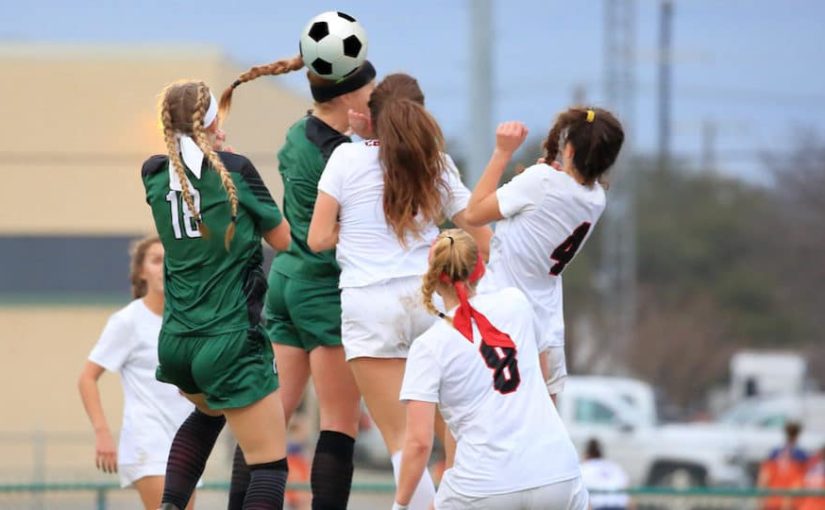Q&A: Arnie Miehe, seven-time state champion cross country coach
 Five consecutive state championships would satisfy any high school coach, but that’s not what keeps Arnie Miehe motivated. All he wants is to make a difference.
Five consecutive state championships would satisfy any high school coach, but that’s not what keeps Arnie Miehe motivated. All he wants is to make a difference.
“I love it when (former athletes) send me Christmas cards; that’s what it’s about,” said Miehe, reflecting on the relationships he’s developed during his 35-year career as cross country coach at Darlington High School (Wisconsin). “To me, that’s my paycheck.”
Last year, Miehe was one of 22 coaches chosen as Coach of the Year by the NFHS Coaches Association. His career includes more than 2,400 dual victories, 17 conference titles and seven state championships.This summer, Coach and Athletic Director sat down with Miehe in Darlington to discuss the strategies behind his winning program.
What kind of coach were you 35 years ago when you first came to Darlington?
I was a runner myself, so I came in with all this enthusiasm. It didn’t matter what happened, but we were going to go and run like I ran — go hard. Then you go to clinics and they talk about not running quite so hard on easy days, and then the training and VO2 max. The more I went to clinics, the more confused I got. You start analyzing it and second guessing things, so I went through that where you start questioning your approach.
Now, when I go to clinics, a lot of that stuff I can say “that’s not my deal,” where when you’re younger you try to write it all down rather than looking for what adjustments you can make here in what you’re doing. That’s the point I’m at.
So what would you go back and tell your younger self?
Not to doubt yourself. I never questioned things, we trained and trained hard, and then I started doubting and analyzing it. I believe there were just little adjustments we needed rather than an overhaul.
I would also say, “Understand who you are.” I know guys who are into physiology and everything is timed. It works for them, but for me? No. I was trying to make myself become that, and I think what coaches have to do is look at their background, look at who they are, what makes them tick, how they interact with their kids and find something that fits for them.
Would that be your advice to someone entering their first year as a coach?
If there’s one thing, I would say what you do for a workout is less important than making a connection with the kids and believing in what you’re doing. You have to believe in yourself and be comfortable with it and have a connection with kids, and I see so many people who don’t do that.
What do you believe you’re doing here that’s so different from other programs?
We have a real close team. I work on that and I’m very attune to that. We go to camp for two days, and they’re all in a cabin together. We talk about if there’s a problem that you take care of it. You’re a senior, that’s your teammate. I try to stand back and have them solve the problem and pick up each other.
I also believe in ownership and closeness. If you’re only running for yourself, you can pull the plug anytime. But if you’re out there and someone else depends on you, it changes things. I think the closeness and togetherness we try to develop has an impact.
What’s your philosophy as far as preparation for meets?
We do a lot of active strength training and run a lot of hills; that’s a big part of it. We talk about discomfort and how the kids have to get through that, and I try to keep perspective with them.
At our camp, we showed the first 20 minutes of “Saving Private Ryan.” Looking at those guys, their life is going to end in a couple minutes and they know it. How does that compare with you riding up there to the River Valley Invite? We get so overwhelmed sometimes, and I try to give them perspective. We’ll talk about cancer. You think you’re hurting when you’re running? You’re not hurting — they’re hurting. Stop and think about it.
When you’re a kid, you can’t see past yourself. I’m 60 and I have a hard time with it. It’s something I’ve tried to do here is keep perspective. Kids have to learn that life is not about you. You’re part of it, but only a part.
What do you try to achieve with new kids coming into your program?
Keep them innocent. As they get older they have responsibility and they know it and grow into it, but when you’re younger it’s different. You’ve got to mature into that.
We’ve got a couple of younger girls where I’ll say, “That was something today, you ran well” and leave it at that. For juniors and seniors I’ll say, “Girls, you need to be a part of that front pack and you know it.”
How do your teams choose captains?
We elect them at the end of the year; the team votes for them and it’s announced at the banquet.
The reason we do that is everybody takes ownership. If you have two captains, everybody else can say, “I’m not the captain, you take care of it.” I think it’s important that seniors have that sense of earning that right and they also have a responsibility. If I have issues with the girls teams, all of the senior girls stay behind before running and I say, “here’s the problem.”
Have you changed your approach over the years to adapt to the personalities of Millennials?
No, I’m old school and I’m going to stay old school. I’m not on Facebook and whatever all of that is, and I think we’re missing something in society with a lot of that stuff. It used to be when we were on the bus everybody would talk, but now they’re looking down at their devices. And it used to be if a parent had an issue they would call me, but now it’s a text message. We need to have face-to-face conversations and if you have a problem, come to me and we’ll deal with it.
You’ve coached for more than three decades. Do you plan on doing this forever?
I coached all four of my kids, and when the last one graduated we won the state title. The initial plan was to ride off into the sunset, but my other son said I have to keep coaching because he wants to come takeover.
I really don’t have any plan. I enjoy it. When I retired from teaching the thing I missed was having an impact on young people. That’s why I got into teaching. What made me get out was the shift to focus on test scores rather than impacting kids’ lives. I’m sure if things were going bad it would make it easier to walk away, but right now I love what I do.





